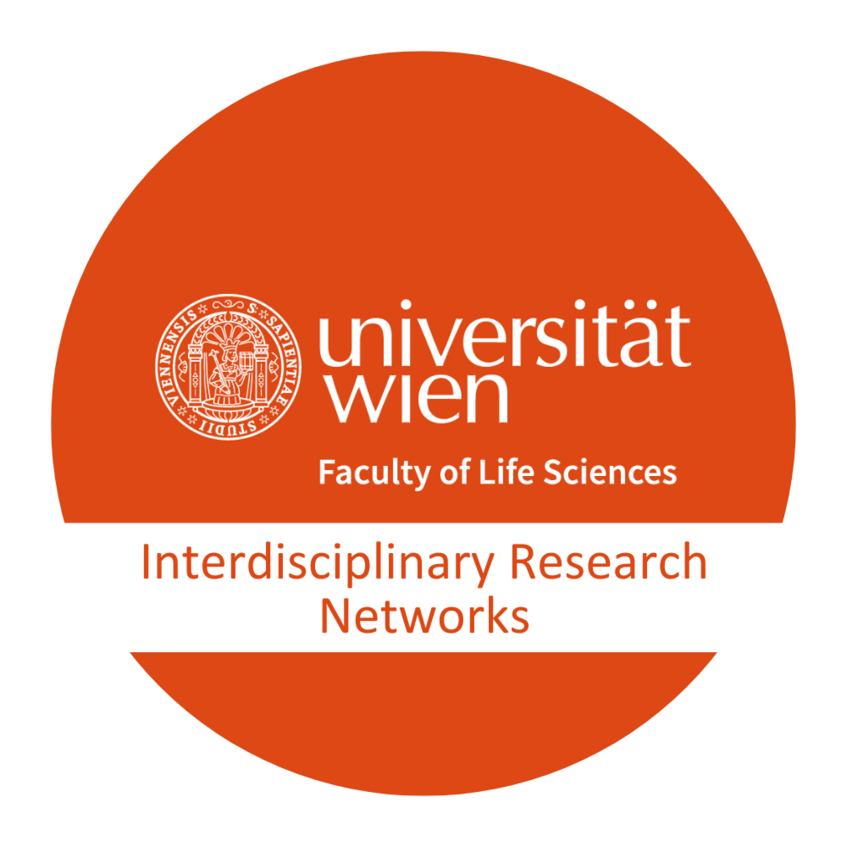Interdisciplinary Research Networks
The Faculty of Life Sciences is seeking to cultivate collaborative research endeavors across the disciplines of Biology, Nutritional Sciences, and Pharmaceutical Sciences. This funding initiative aims to foster new collaborations within the faculty and with academic institutions at the Vienna BioCenter (VBC). Specifically targeting young scientists, this call encourages them to secure research funding and forge new collaborations. The proposals are evaluated by the Scientific Advisory Board (SAB) of the Faculty.

2022
- The aging guinea pig - Determining the effects of steroid hormones, sex, and social housing conditions on physiological and behavioural indicators of aging. Matthias Nemeth (Department of Behavioral and Cognitive Biology), Annette Brandt (Department of Nutritional Sciences)
- NMR determination of the molecular mechanisms of Atg11/Atg9 interaction in autophagosome nucleation. Julien Orts (Department of Pharmaceutical Sciences), Sascha Mertens (MFPL)
- Lipidomics and metabolomics profile alteration of older adults after vitamin D supplementation and strength training. Amar Tahir (Department of Pharmaceutical Sciences), Karl-Heinz Wagner (Department of Nutritional Sciences)
2021
- Emissions of CO2, CH4 and N2O from and by groundwater super-saturated in individual greenhouse gases during irrigation of crop. Christian Griebler (Department of Functional and Evolutionary Ecology), Stephan Glatzel (Department of Geography and Regional Research)
- BioDataScience Initiative. Tecumseh Fitch (Department of Behavioral and Cognitive Biology), Thierry Langer (Department of Pharmaceutical Sciences)
2020
- Neolignans: new therapeutics in the prevention of diet-induced intestinal barrier dysfunction? Ina Bergheim (Department of Nutritional Sciences), Verena Dirsch (Division of Pharmacognosy)
- Plasma metabolome of elderly people after protein and exercise intervention. Karl-Heinz Wagner (Department of Nutritional Sciences), Wolfram Weckwerth (Department of Functional and Evolutionary Ecology)
- Consume or conserve: the use of high-quality food for energy allocationand overwintering strategies in common hamsters. Eva Millesi (Department of Behavioural and Cognitive Biology), Stefanie Wienkoop (Department of Functional and Evolutionary Ecology)
2019
- Multidisciplinary approach to unravelling secondary metabolite biosynthesis within bacterial microbiome of the bryozoan Cristatella mucedo; Sergey Zotchev (Division of Pharmacognosy); Thomas Rattei (Centre for Microbiology and Environmental System Science)
- Establishing the Cyanophage Hunters Network (CHN) – the enigma of lysogenic phages in Arthrospira fusiformis; Michael Schagerl (Deparmtent of Functional and Evolutionary Ecology), Martina Weber (Deptartment Botany and Biodiversity Research), Arndt van Haeseler (MFPL)
- Spatio-temporal effects of climate change and physiological vulnerability of tropical montane birds in human-dominated landscapes; Leonida Fusani (Department of Behavioral and Cognitive Biology); Stefan Dullinger (Department of Botany and Biodiversity Research); Christian H. Schulze (Department of Botany and Biodiversity Research)
2018
- Treating humanized flies to cure depression: A combined in silico and in vivo screen for chemical modulators of serotonin transporter activity; Thomas Hummel (Department of Neuroscience and Developmental Biology) and Gerhard Ecker (Department of Pharmaceutical Chemistry)
- Consequences of genomic interactions between ecologically important species; Christian Lexer (Department of Botany and Biodiversity Research) and Joachim Hermisson (Department of Structural and Computational Biology/MFPL)
- Self medication in Darwin’s finches: identifying the mosquito repellent components of Psidium galapageum; Sabine Tebbich (Department of Behavioural and Cognitive Biology) and Liselotte Krenn (Division of Pharmacognosy)
2017
- Analysis of transcription factor protein interaction networks in development and physiology; Ulrich Technau (Department of Neuroscience and Developmental Biology), Wolfram Weckwerth (Department of Functional and Evolutionary Ecology, Vienna Metabolomics Center) and Elke Heiss (Division of Pharmacognosy)
- Archaea as novel tumor homing therapeutics; Christa Schleper (Department of Functional and Evolutionary Ecology) and Manfred Ogris (Department of Pharmaceutical Chemistry)
2016
- Advanced optical tracing to unravel the cellular transport mechanism of an immune-gene therapy approach for cancer - Ingeborg Lang (Department of Functional and Evolutionary Ecology), CF Cell Imaging und Ultrastrukturforschung and Manfred Ogris (Deptartment of Pharmaceutical Chemistry)
- Flower visiting beetles as potential pollinators - Harald Krenn (Deptartment of Evolutionary Biology) and Jürg Schönenberger (Department of Botaniy and Biodiversity Research)
- Microbial communities in marine sediments: preliminary analyses of diversity and secondary metabolite biosynthesis potential - Sergey Zotchev, Judith Rollinger (both Division of Pharmakognosy) and Gerhard Herndl (Department of Functional and Evolutionary Ecology)
- Oxidative stress in bird migration - Leonida Fusani (Department of Behavioral and Cognitive Biology) and Karl-Heinz Wagner (Deptartment of Nutritional Sciences)
